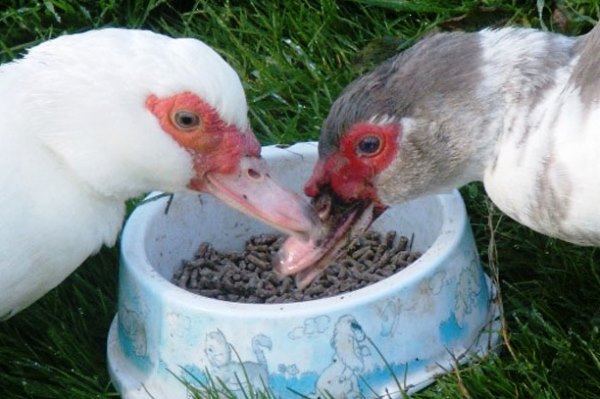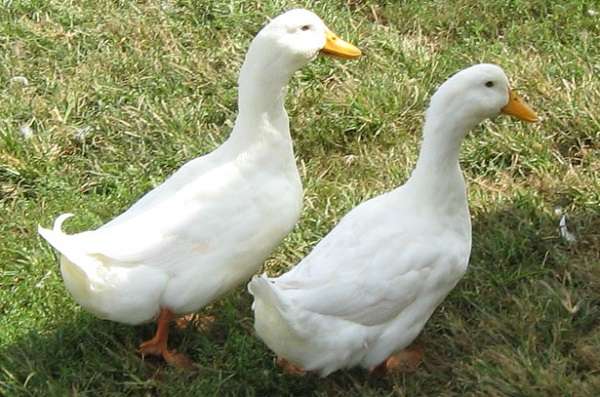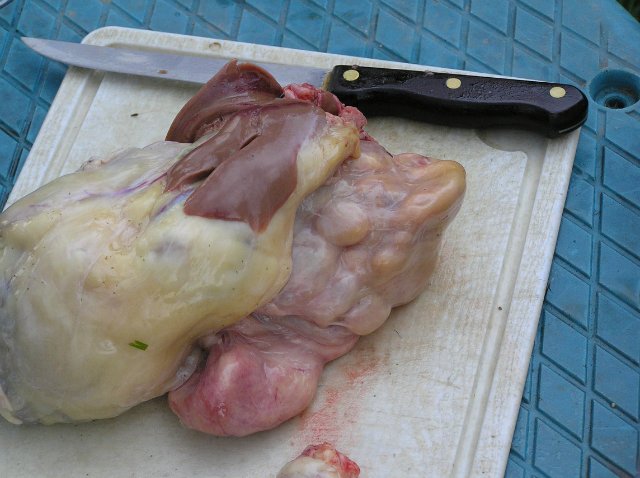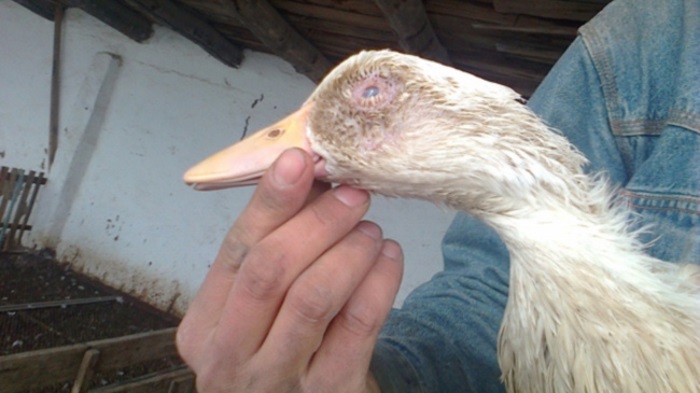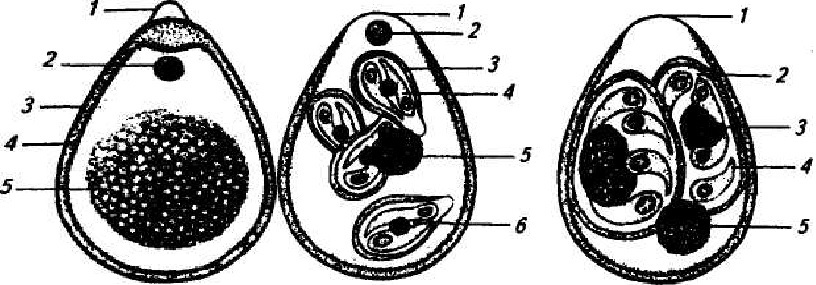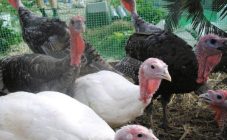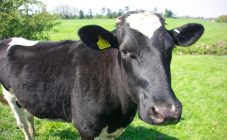Content:
Diseases affect not only humans, but also animals, including birds. Most often, birds get sick due to the fact that they do not change the water in the drinker, they feed it somehow, do not follow the rules of keeping. Similar problems occur in all poultry, including ducks. Therefore, in order for everyone to be healthy on the farm, you need to take preventive measures and prevent illness. This article will look at the symptoms of ducks disease and treatment.
Reasons why ducks get sick
Poultry farmers who have been breeding ducks for more than one year often face diseases of their wards. The cause of the disease can be:
- infections;
- fungal pathogens;
- lack of vitamins in the body.
Birds can often get injured during various squabbles in the herd or when meeting other individuals. Under all circumstances, the poultry farmer must correctly identify the cause of the duck's discomfort and take the necessary measures.
Before doing any action, it is recommended that a sick individual be isolated from the entire herd in order to observe her and fully make sure that she is not healthy.
Diseases of ducks
When ducks die, the cause can be very serious, one of the symptoms is the death of the bird on the limb. Indoor female diseases are divided into three groups:
- Non-infectious diseases are diseases that are not transmitted from individual to individual, and are also not dangerous to humans. Such ailments occur in the unsanitary conditions of the poultry house. In addition, poor bird nutrition, high humidity or temperature instability can be the cause.
- Infectious - the cause of this type of disease can be other birds or animals, from which the musky mulard could become infected.
- Parasitic diseases are infections of birds by external parasites.
Non-communicable diseases
Non-infectious diseases include:
- different forms of vitamin deficiency;
- cloacite;
- goiter catarrh;
- blockage of the goiter;
- food poisoning;
- cannibalism;
- yolk peritonitis.
A description of some diseases will help you quickly understand the situation and take the necessary measures.
Avitaminosis
With a lack of vitamin A in the body of the mute, the following symptoms occur:
- paws, skin and beak begin to brighten;
- feathers stick out in all directions, and the bird has a sloppy appearance;
- females stop rushing;
- the bird refuses to eat;
- conjunctiva with lacrimation appear on the eyes;
- the duck becomes exhausted and apathetic;
- the eyelids turn sour;
- the bird stops developing.
To cure a duck, you need to give it two or three drops of fish oil for fourteen days. Thanks to him, the color of the skin will be restored, immunity will improve. Also, you need to add vitamins and minerals to the feed.
As a prophylaxis, Indo-women are fed fresh greens, root crops and algae.
The lack of vitamin B1 leads to a disorder of the nervous system. In this case, the duck has the following symptoms:
- weakness of the body, the bird does not move well;
- constantly throws his head back in an unnatural position;
- will twist the neck;
- convulsions occur;
- stops growing.
To save the bird from suffering and for prevention purposes, it is necessary to add to the feed:
- greens,
- bran,
- yeast,
- corn.
Avitaminosis B2 leads to formations on the joints of growths, the occurrence of anemia, and refusal to feed. In this case, the correct treatment is necessary. For this, yogurt, herbs, bone meal are mixed into the feed.
Lack of vitamin B12 affects the egg production of ducks. In addition, birds develop anemia, ducklings lag behind in development and growth, as well as in puberty, and stop feeding.
In this case, you need to feed the livers, bone or fish meal, and yogurt to the Indo-milkers.
If vitamin D does not enter the body, rickets begins to develop in birds. As a result of this reason, mineral metabolism disorders occur in the body. This also explains why ducks limp. The symptoms of the disease are as follows:
- ducklings stop developing normally and lag significantly behind their peers;
- bones and beak become soft;
- the shells on the eggs are also soft and fragile.
For treatment, as well as for prophylaxis, birds are shown to feed foods such as:
- fish fat,
- yeast,
- minerals,
- seashells,
- a piece of chalk,
- fish meal.
In addition, they need to be in the fresh air for a long time. If the disease is severely neglected, then only irradiation with an ultraviolet lamp can save the livestock.
A lack of vitamin E in the body leads to white muscle disease. In this case, the birds behave as follows:
- constantly close their eyes, as if sleeping;
- faintly audible heartbeat;
- eat poorly;
- convulsions occur;
- stop rushing completely.
This disease is treated with drops of Tocopherol, which are mixed into the feed. The dose should be no more than one drop per duck. For prevention purposes, you should feed the animals:
- wheat;
- herbal flour;
- waste of dairy products.
Many are interested in the question: "Why does the duck eat in the hall?" The body of birds, in addition to vitamins, needs minerals, so they need to be given ash, which contains potassium and phosphorus. In addition to her, you need to feed the birds chalk, molluscs, limestone, shells, bone meal.
Cloacite
Cloacitis - This disease is characterized by an inflammatory process in the female's cloaca. This disease occurs when the bird does not get enough vitamins and minerals. The main symptoms of the disease are:
- the fluff around the cloaca is dirty;
- the duck is severely emaciated;
- stopped rushing;
- the mucous membrane is very reddened;
- wounds with suppuration appeared on the cloaca.
Goiter catarrh
This disease occurs when the food is sticky or the duck swallows an inedible item. In this case, symptoms will appear:
- the duck will behave restlessly;
- will stretch the neck;
- the goiter is unnaturally swollen;
- foam will come from the beak;
- the duck will smell unpleasant;
- stop eating.
To save her from suffering, you need to raise her by the paws up and with smooth movements of the hand to drive along the goiter to induce vomiting. Then, instead of feed on the first day, the living creatures need to be watered with a 5% solution of hydrochloric acid. After that, the feed should be liquid for the first time. To avoid such situations, food for Indo-girls should be of the same texture, in no case should there be small stones in the walking area.
Blockage of the esophagus
This can occur if the bird has swallowed a hard foreign object. In this case, she will be lethargic, stop eating, and the goiter will be hard on palpation.Also, ducks wheeze treatment of this problem is possible only with the help of surgery.
Food poisoning
The fall of the duck can be caused by poisoning by poisonous mushrooms and plants. The disease can be recognized by the following symptoms:
- the duck becomes lethargic, weakly active;
- constipation or, conversely, diarrhea;
- persistent gagging;
- the fallen drake has convulsions.
In this case, it is necessary to give the bird warm water with activated carbon diluted in it. Further treatment is carried out with charcoal and magnesium sulfate.
Cannibalism
Very often, situations arise when ducks begin to show aggression towards their relatives. Many poultry houses are interested in the question: "Why do ducks drown ducklings?" This is a manifestation of a disease called cannibalism. It arises as a result of poor conditions for keeping poultry, lack of vitamins. In this case, the only solution would be to kill aggressive ducks and improve living conditions when healthy. In the poultry house, the litter should always be dry; during the day, the birds should be walked. Feed balanced, rich in useful minerals and vitamins.
Yolk peritonitis
Often ducks die the cause of this disease is yolk peritonitis. The first symptoms of the disease are weakness and lethargy of the bird. The animals stop eating, the fluff sticks together at the cloaca, egg production decreases, the temperature rises. If you watch birds, you can understand why ducks die. It should be noted that this disease is not cured; within a week, it is still fatal.
To protect animals from peritonitis, you need to feed them food rich in vitamins, walk in warm weather and be sure to keep them in a spacious poultry house.
Infectious diseases
It often happens among farmers that in just a few hours all the birds disappear, and they do not know why ducks are dying. Infectious diseases are the most dangerous for birds, because after the pathogen enters the body, it can die for several hours without having time to get help.
Infectious diseases include:
- paratyphoid (salmonellosis);
- viral hepatitis;
- eimeriosis (coccidiosis);
- pasteurellosis (cholera);
- bird flu;
- tuberculosis.
Salmonellosis
This disease most often occurs in young ducklings, but an adult bird is not immune from it. Infection occurs most often during food intake, by airborne droplets or through eggs. There are two forms of the disease:
- Sharp - little ducklings are ill;
- Chronic is characteristic of an adult bird.
In birds with paratyphoid fever, the mortality rate is eighty percent. Those individuals that survived subsequently have low productivity. Moreover, they are carriers of this disease. And the brood of duck, which later hatches, will also be sick with salmonellosis. The disease is very dangerous for the human body. Moreover, the incubation period ranges from twelve hours to a week. The first signs of the disease:
- diarrhea occurs;
- the bird refuses food;
- becomes lethargic;
- lowers its wings;
- conjunctiva appear;
- fluff around the cloaca and eyelids sticks together;
- staggers while walking;
- heat;
- at the last stage, convulsions begin, after which the bird falls off its feet and dies.
In order to avoid the extinction of the entire livestock, the following preventive measures should be taken:
- Burn the corpses of a dead bird;
- Disinfect the room;
- Add greens and yeast to the feed;
- Avoid contact with stray animals.
Hepatitis
This virus affects young ducklings up to two weeks old. Moreover, in the first week it is impossible to cure a single baby. Of those that get sick, only a few individuals later survive. Adult ducks are not afraid of this disease. Babies are infected from adult carriers of the virus through droppings or during feeding. The virus is resistant to the external environment. It can persist for a long time on inventory and bedding.
The following symptoms appear in sick ducklings:
- The mucous membrane of the eyes turns blue;
- Breathes hard;
- Falls to his feet;
- Convulsions begin.
It is useless to treat chicks. The only thing that can be done is to vaccinate the hatched babies.
Aymeriosis
Few people know what coccidiosis in ducks is, what symptoms and treatment should be taken. Most often, four-month-old ducklings suffer from this disease. In this case, intestinal damage occurs. There are two forms:
- Sharp - it lasts no more than a week, while the birds die. The survival rate in this case is about twenty percent.
- Chronic is a continuation of the acute form of the disease.
Unhealthy animals are manifested in the following symptoms:
- diarrhea, in which the feces are extremely green, later may be mixed with blood;
- poor appetite;
- lethargy;
- the duck practically does not move;
- feathers are disheveled, sloppy;
- the duck is constantly cold and looks for a heat source.
For treatment, amprolium, zoalen, bikoks are used.
Parasitic diseases
Such diseases include:
- helminthiasis;
- sarcocystosis of ducks.
Helminthiases, or worms, live in the oviduct, intestines, and also in the respiratory organs. Treat the disease with albendazole. In addition, the ducks can be fed garlic, onions and needles. This will prevent parasites from forming.
Invasion by external parasites
Often farmers ask why ducks fall out of feathers and go bald. This most likely means that blood-sucking parasites have settled on them. These can be lice, lice or fleas. In this case, if the necessary measures are not taken, the birds may die. Such birds can be cured with the help of preparations, which contain sulfur and mercury. The premises are disinfected with "Chlorofos" or "Karbofos" preparations. You can treat birds with Butox-50. In addition, install ash and sand baths for ducks to bathe there.
In order for ducks to grow well, develop and not get sick, it is necessary to adhere to the rules of keeping. It is imperative to feed them with properly balanced feed, provide vitamins and minerals, and take preventive measures against diseases.
